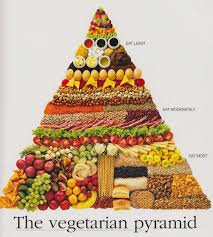
However, once I realized "dieting" DOES NOT WORK, and started doing my own research on real nutrition through only very reputable institutions, (Harvard, Berkeley, the Cleveland Clinic, and Cornell, where I became certified), I learned how to become HEALTHY and weight loss was just an added bonus!!
The solution to losing weight is a whole food plant based diet, (WFPB), along with a reasonable amount of exercise. It is a long-term lifestyle change, rather than a quick-fix fad diet, and it sustains weight loss while diminishing the risk of disease.
Solving the problem, whether it be a medical condition, weight gain or a chronic disease, does not require magic or complicated equations or counting carbs, fats or calories. People that are eating a WFPB diet are much thinner than their meat-eating, dairy consuming counterparts. There have been numerous studies done asking people that were overweight to eat as much as they wanted of foods that were mostly low-fat, whole foods and plant based. In three weeks these people lost an average of 17 pounds. At the Pritikin Center, 4,500 patients who had gone through their three-week program by eating a WFPB diet had similar results. The Pritkin Center found that its clients lost 5.5% of their body weight over a three week period.
All of these results show that eating a WFPB diet will help you to lose weight and lose it quickly. In most of these studies, the people who shed the most pounds were those who had the most to lose. Most importantly, losing weight this way is consistent with long-term health.
Some people can be on a plant based diet and still not lose weight. There are a few good reasons for this. First, losing body weight on a plant based diet is much less likely to occur if the diet includes too many refined carbohydrates. Sweets, pastries and pastas won't do it! These foods are high in readily digested sugars and starches, and for the pastries, very high in fat as well. These highly processed, unnatural foods are NOT part of a plant based diet that promotes health and helps you to lose weight. This is one of the reasons I refer to this way of eating as a WHOLE FOOD, plant based diet.....pastries, sweets, chips, etc., are NOT whole foods! When I mention whole foods, in my mind that means food that comes directly from nature, nothing added to the food and nothing taken out of it.
Also, a strict vegetarian diet is not necessarily the same thing as a whole food plant based diet. Some people become vegetarian only to replace meat with dairy foods, added oils and refined carbs including pasta made with refined grains, sweet and pastries. Really, these are "junk-food" vegetarians because this diet is NOT a healthy diet.
The second reason a person may not lose weight is lack of any exercise. A reasonable amount of exercise, even just a brisk 30 minute walk everyday can pay off big time. And thirdly, certain people have a family predisposition for being overweight making their challenge more difficult. If you are one of these people, then you have to be even more diligent in your diet and exercise...but it can be done!
Keeping body weight off is a long-term lifestyle choice. Gimmicks that promise large, quick weight losses don't work in the long-term. Short-term gains should not come along with long-term pain like kidney problems, heart disease, cancer, bone and joint ailments and other problems that are linked to our diets. If the weight was gained slowly over a period of months and years, why would you expect to take if off healthily in a matter or weeks? Treating weight loss as a race doesn't work--it only makes the dieter more anxious to quit the diet and go back to the eating habits that put them there in the first place.
So, the first step to a WFPB diet is to know the foods that need to be eliminated--meat, (including beef, pork, chicken, turkey, processed meats such as salami, bacon, pepperoni, etc.), fish, dairy, eggs and processed foods. Most people like to start with eliminating one food group at a time -many people start with processed foods. My rule is do not eat anything that comes in a can, package or box that has an ingredient list with more than 5 ingredients...also, you need to know what each ingredient is...if you can't pronounce it, chances are you don't know what it is and our body does not know what to do with it. If it doesn't come from nature, it is not a "whole food". Processed foods include soda, chips, cookies, pastries, sweets, candy, snacks, frozen dinners, frozen pizza, pre-packaged "meals" like Hamburger Helper or macaroni and cheese--these are not real foods--they have no real nutritional value whatsoever.
Set a goal for one week, two weeks, however long you want it to be, and eliminate all the processed foods in your diet. Once you have that down, then move on to the next food group. It doesn't matter how long the transition takes, the fact is you are moving in the right direction--this usually doesn't happen overnight, but neither did the weight gain or the disease you have been diagnosed with.
But the good news is, we can take control of our health and our weight and reverse the damage that may have been done!
 RSS Feed
RSS Feed
